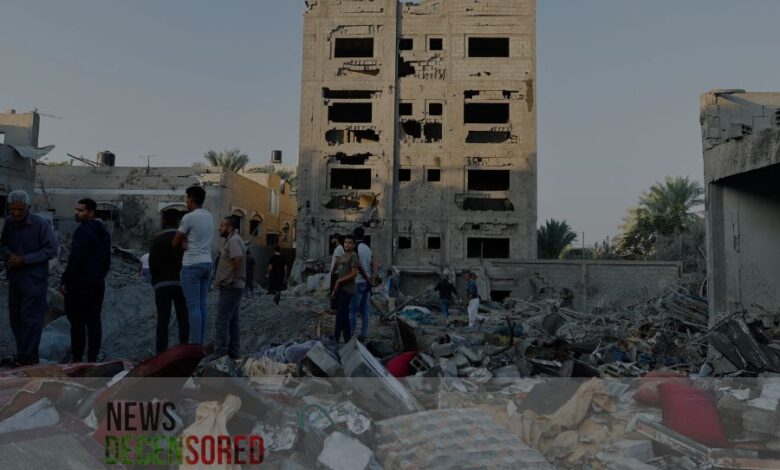46% of American youth reject Israel’s war on Gaza

An opinion poll conducted by the Pew Center for Studies in Washington, United States, revealed that 46% of young Americans polled believe that the Israeli response to the Palestinian resistance attack on the settlements surrounding the Gaza Strip on the seventh of last October is unacceptable.
The Washington Post reported that the opinion poll, in which 12,693 Americans from different age groups and religions participated, showed that 21% of American youth believe that the Israeli response is acceptable, while 32% said that they are not sure whether the Israeli response is acceptable or not.
The results of the poll reveal the division of the American street regarding the Israeli war on the Gaza Strip, which has so far claimed the lives of about 32,000 Palestinians, injured more than 74,000 others, and destroyed a third of the Strip’s buildings, according to United Nations estimates.
While the results clearly indicate that most young people reject the Israeli war on the Gaza Strip and see Israel’s behavior in the war as unacceptable, 53% of the elderly respondents who are over the age of 65 see Israel’s response by launching a war on Gaza as acceptable, compared to 29% of the same respondents. The age group found the response unacceptable.
The poll did not bring anything new regarding the view of American Jews on the devastating Israeli war on the Gaza Strip, as the results of the poll indicate that 62% of Jewish Americans see Israel’s behavior in its war on Gaza as acceptable, while only 5% of the Muslims polled shared the same opinion.
Since the beginning of the Israeli aggression on the Gaza Strip, the United States has witnessed an anti-war movement demanding its cessation in several cities and states. American universities have also witnessed strong student protests demanding an end to the ongoing war on the Strip for more than 5 months.
Tension is rising in American universities due to protests against the Gaza war
Earlier this month Columbia University announced that it would suspend two student associations – “Students for Justice in Palestine” and “Jewish Voice for Peace” – from being official student groups until the end of the semester.
At MIT, President Sally Kornbluth sent a letter to all students outlining “the boundaries of campus protest” during a pro-Palestinian demonstration that she described as “disruptive” and “noisy.” The protest continued in one building throughout the day and attracted counter-demonstrators.
This war placed private universities in the United States facing a delicate dilemma, as they were required to meet the demands of their wealthy pro-Israel supporters, while at the same time preserving the right of their students to express their opinions in support of the Palestinians.
A number of wealthy Americans have, or at least hinted at, stopping their donations to prestigious institutions of higher education such as Harvard University in Massachusetts and the University of Pennsylvania in Philadelphia.
Meanwhile, the Wexner organization, which works to prepare “leaders of the American Jewish community and the State of Israel,” has ended its partnership with the Kennedy School at Harvard University.
The US Constitution guarantees freedom of expression and opinion, and many university officials rely on the 1967 Calvin Commission report to defend students’ freedom to express their positions.
This report – issued by the University of Chicago in the midst of angry protests against the Vietnam War and civil rights riots – concluded that the role of universities should be to promote a pluralism of opinions rather than to take a position on controversial issues.




